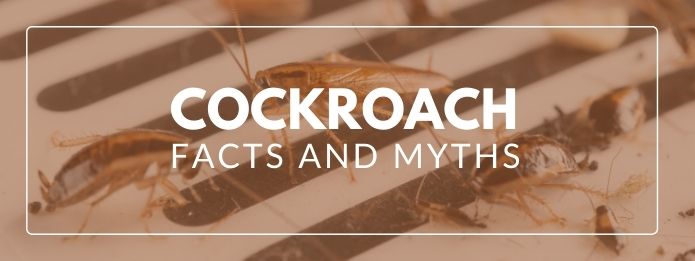
Because millions of cockroaches live in North America, everyone thinks they already have heard all there is to know about them. However, what you don’t know may surprise you; it also may affect the way you seek cockroach control Kitchener services. Here are six common myths about cockroaches and the scientific facts that prove they are false.
1. Cockroaches Don’t Bite
Sometimes when homeowners have tried unsuccessfully to end a cockroach infestation, they shrug their shoulders and say, “at least they don’t bite.” While it’s true that cockroaches do not suck blood like bedbugs do, they do indeed bite. They grab small mouthfuls of human flesh the same way they would any other meat they might encounter in the wild. Most bites occur while people sleep, and sailors on infested ships are especially susceptible.
2. Cockroaches Don’t Carry as Many Diseases as Rodents
It’s true that rats and mice are responsible for some of history’s most deadly outbreaks, including hantavirus and the bubonic plague. However, cockroaches spread germs from the sewage and garbage where they live. They carry poliovirus, as well as the bacteria that cause salmonella poisoning, staph infections, and strep throat. Besides these illnesses, airborne particles of cockroach exoskeletons contribute to allergies and asthma attacks, especially in homes with carpeting.
3. Cockroaches Only Live in Dirty Homes
Some people are ashamed to seek help for a cockroach problem because they believe their poor housekeeping skills are to blame. They think that if they could just clean thoroughly enough, then the roaches would magically disappear. The truth is that roaches do not care whether a home is clean or dirty, so long as there is food present. They are not fussy eaters, and will stick around for meals as unappetizing as book glue, fingernails, and soap.
4. Cockroaches Don’t Poop
Cockroaches possess an amazing adaptation that allows them to recycle nitrogenous wastes and eliminates their need to urinate. Even though they don’t pee, they do excrete solid waste like any member of the animal kingdom. Similar to birds, cockroaches have a crop and gizzard to receive food after eating. After a cockroach’s intestines absorb nutrients, waste materials that resemble coffee grounds travel through its colon and rectum, then leave the body through its tiny anus. Roaches also pass gas.
5. Cockroaches Chase People
Katsaridaphobia is an extreme fear of cockroaches, and some develop this phobia after erroneously believing that a cockroach chased them. If it appears that a cockroach is running or even flying toward you, keep in mind that it is not acting aggressively. Rather, it is trying to escape from air currents that instincts tell it mean danger, and you just happen to be in the way. Roaches run up to 4.8 km per hour and many species fly, so you have to move fast to avoid being hit by one.
6. Cockroaches Serve No Purpose
Don’t feel bad if you think the only good cockroach is a dead one; most people are not particularly appreciative of a roach’s role in the web of life. Our ancestors may have felt differently, though. Thousands of years ago, humans encouraged cockroaches to co-inhabit caves with them, due to the insect’s ability to remove toxic bat guano from the walls. Cockroaches also recycle dead organic materials and serve as food for many other animals, including birds and bears.
Truly Nolen Gets Rid of Roaches
As fascinating as they are, you don’t want cockroaches in your home. Truly Nolen’s cockroach control Kitchener technicians know the facts about this insect and will end your infestation with methods that won’t harm your pets or family. Contact us online today to set up a home inspection.